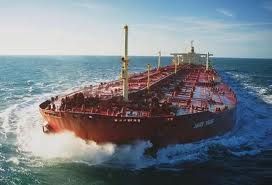
Continuity in the manpower overseeing any complex technical equipment is important, as anyone who has had responsibility for the maintenance of a ship knows full well. It is not easy, with some of the liberal crewing regimes that are necessary to attract people to stay
at sea, when crew members are sometimes just a few weeks aboard before being relieved. Such arrangements demand the most punctilious record keeping if some vital information about a job “half-done” is not to fall between the responsible crew members.
Once, the person responsible for allocating manpower to ships was principally concerned that those appointed had the appropriate qualifications to suit the manning scale required by the flag state. Now, issues of experience and time in the necessary rank intrude, as they are insisted on by certain charterers who have started to introduce this complexity. But even this is only part of the problem, with the need to ensure that there is continuity between crews on their short tours of duty and that all those appointed have the capabilities to operate the specific items of equipment in the ship they are joining.
Accidents caused by unfamiliarity are mounting up. An early warning was an incident with a brand new and very sophisticated containership, whose Chief Engineer, the officer who was most familiar with the power plant and its complex systems, was taken ashore unexpectedly for a personal family problem and his relief had to get to grips with this complex beast with no warning and little training. Then, when alarms started to go off and the computerised systems took over, the relieving officer was unable to properly intervene and the ship got out of control while manoeuvring, with expensive consequences.
A recent UK Marine Accident Investigation report into an engine room fire exposed numbers of shortcomings in maintenance and repairs which were at least partly contributed to by the lack of adequate oversight because of frequent crew changes, exacerbated by shortages of responsible superintendents ashore, the very people who might have been able to detect that all was not well with the inter-crew handovers and record keeping. It was described as a lack of vessel “ownership”, which describes the situation admirably.
It is the need to have somebody who can take proper responsibility for the ship and its many systems, who can establish the necessary chains of command and continuity as jobs pass between crew members that provides the important component. It is not getting any easier as the ship’s systems become more complex, but it is noticeable that ship operators running ferries at a high intensity, with very frequent crew changes, have taken this problem on board and established supervisory and record keeping systems that are designed to demonstrate effective “ownership”. There will never be any doubt, under such systems, about who is “in charge” and what stage any repair or maintenance job will be at.
But even for the best organised ship operations it is getting harder all the time to ensure that each ship has available not just the certificates that provide official “blessing” and keep the ship legal, but the right match of skills to the equipment aboard. And a need for more or less constant training would appear to be self-evident
Source: Bimco
We use cookies to improve your experience. By continuing to use our site, you accept our Cookies, Privacy Policy,Terms and Conditions. Close X